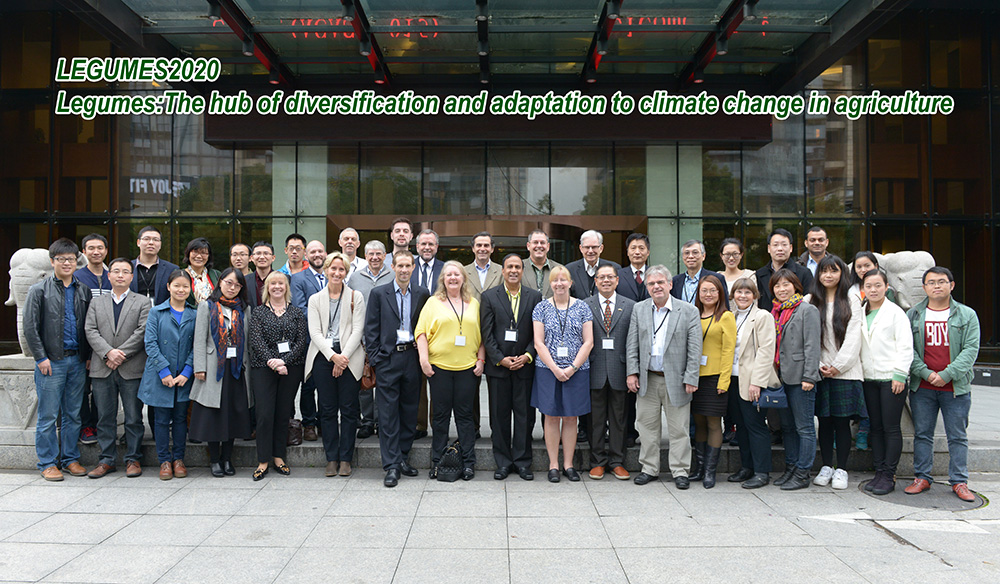
“…diversification of crops with legumes and other practical measures must be scaled up to end hunger while meeting the challenge of climate change.” UN Secretary-General Ban Ki-moon
The global population will run out of food unless science can generate sufficient new crops that bear resilience to the current and increasing yield limitations of temperature extremes, water availability and salt tolerance and nutrient efficiency. In short, we need a third food revolution, to succeed the ‘industrial revolution’ and ‘green revolution’, which sustained the massive population growth since the 1920s to date.
Against these challenges, research on grain legumes has been neglected despite the wide genetic resources available that can meet future food, fodder, environmental and biofuel demands in the face of the global climate challenges.
In November 2015, a three-day meeting was held at Zhejiang University to:
- Define the knowledge-gaps in capturing legume genetic diversity for sustainable food crops.
- Define the state-of-the-art to address legume crop improvement towards 2050.
- Identify champions who will lead grant proposals in Horizon 2020 and similar programs that will fund large scale collaborative programs.
- Establish a program of short-term exchanges, particularly of early-career researchers, between laboratories in order to maximise technology and knowledge transfer.
View the Legumes 2020 program.
The meeting resulted in a policy document aimed at impacting global food security policy.
Watch a video of the Legumes 2020 meeting.
The research group are establishing ongoing activities.
Publication cited in the “top five” publications can be found here.
UNFAO International Year of Pulses.
Selected outcomes
- Manuscript in preparation for Nature Plants. To be submitted February 2016.
- Special Issue of the Journal of Experimental Botany, edited by Dr Considine, Prof Foyer and Prof
- Siddique. This will include 10 review articles plus 6 research manuscripts. To be published in July 2016.
- A review on oxygen and redox signalling in plant development is in preparation. This will be submitted to a high-impact journal in April 2016.
- Policy impact document produced at Zhejiang meeting, November 2015
- International meeting hosted by Zhejiang University, November 2015
- Neglecting legumes has compromised human health and sustainable food production. Publication in Nature Plants, August 2016
